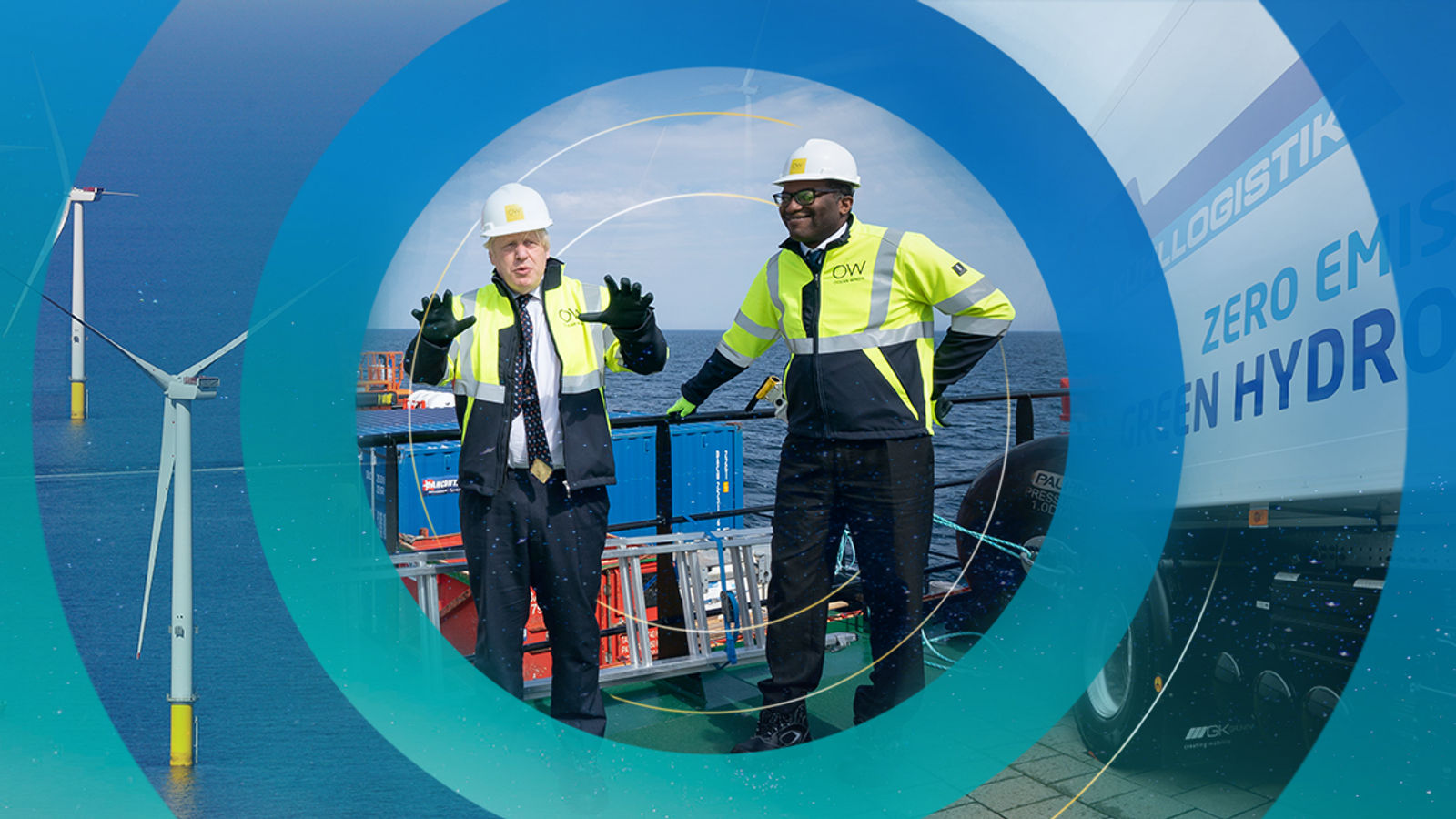The government has unveiled its strategy to produce hydrogen from natural gas, which it says could transform the way we power our lives and will be essential in tackling climate change and reaching net zero targets.
But what is this invisible gas, how can it be used for energy supplies and why is it contentious?
Why do we need hydrogen?
Hydrogen is an invisible, clean energy gas that the government is hoping to introduce to the country’s gas supply, to help wean us off fossil fuels which are driving climate change.
Experts generally agree the UK will need a significant proportion of hydrogen to reach net zero – reducing carbon emissions and offsetting the rest – by 2050, particularly in areas such as heavy industry and transport, according to Jess Ralston, analyst at the Energy and Climate Intelligence Unit (ECIU).
But it’s “certainly not a silver bullet to stopping the UK’s contribution to climate change”, she said.
What is grey, blue and green hydrogen?
Grey hydrogen is the most common form of production, extracting hydrogen from natural gas or other fossil fuels, and generating greenhouse gases in the process.
Blue hydrogen is produced in the same way as grey, but the carbon dioxide emissions are captured and stored underground.
However a recent study warned that “fugitive” emissions make it far from green and the necessary carbon capture and storage (CCS) technology has not yet been rolled out at scale.
Conservative MP Philip Dunne, chair of the cross-party environmental audit committee, said it was important to develop “substantial” capacity for CCS, “so as to avert release of damaging emissions currently created in blue hydrogen production”.
Green hydrogen is made by splitting water, using renewable energy from sources such as windfarms.
Some see the government’s “twin track” approach to using green and blue hydrogen as necessary – others as a road to nowhere. They say because of the residual emissions from blue we should prioritise green hydrogen.
Why is it contentious?
Hydrogen sparks debate because of the different ways it is generated and whether, or how much, climate heating emissions are released in the process.
Juliet Phillips, senior policy advisor at environment think tank E3G, warned that the potential in the government strategy to allow for blending hydrogen into the gas grid was a “Trojan horse” that would keep us hooked on fossil gas.
Some fear that although it will be important for decarbonising heavy industry and steel, in other areas it is a distraction from other clean energy solutions that already exist, such as electricity-powered pumps to heat homes.
Will household bills cost more?
It’s still early days, so costs are uncertain. The government thinks household bills could rise, but likely by a small amount.
Please use Chrome browser for a more accessible video player
Is hydrogen dangerous?
Early risk assessments found that using hydrogen in boilers is no more dangerous than using natural gas, said Dr Eike Thaysen, technical research associate in geosciences at Edinburgh University.
“But a full safety assessment, including for the of blending of hydrogen into the existing gas network, is still outstanding,” she said.
When will hydrogen be introduced?
The government is aiming by 2030 to introduce enough hydrogen to replace the equivalent natural gas in three million UK homes as well as to power transport and businesses, particularly heavy industry.
The Climate Change Committee, the government’s independent advisers, believes advances in heat pumps mean hydrogen will be largely unnecessary to heat homes.
If it is introduced to our homes, it might be coloured so that it is visible.
Hydrogen will likely only play a “very marginal role” this decade for reducing emissions in our homes, said Dr Jan Rosenow, honorary research associate at Oxford University.
“But we cannot wait until 2030… the urgency of the climate crisis requires bold policy action now,” Dr Rosenow added.
Subscribe to ClimateCast on Spotify, Apple Podcasts, or Spreaker.
Every day at 6.30pm, Sky News broadcasts the first daily prime time news show dedicated to climate change.
Hosted by Anna Jones, The Daily Climate Show is following Sky News correspondents as they investigate how global warming is changing our landscape and how we all live our lives.
The show will also highlight solutions to the crisis and show how small changes can make a big difference.






















